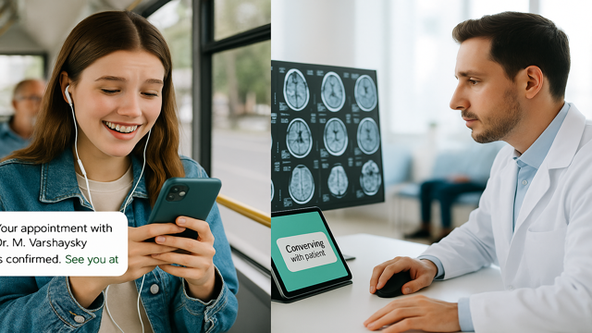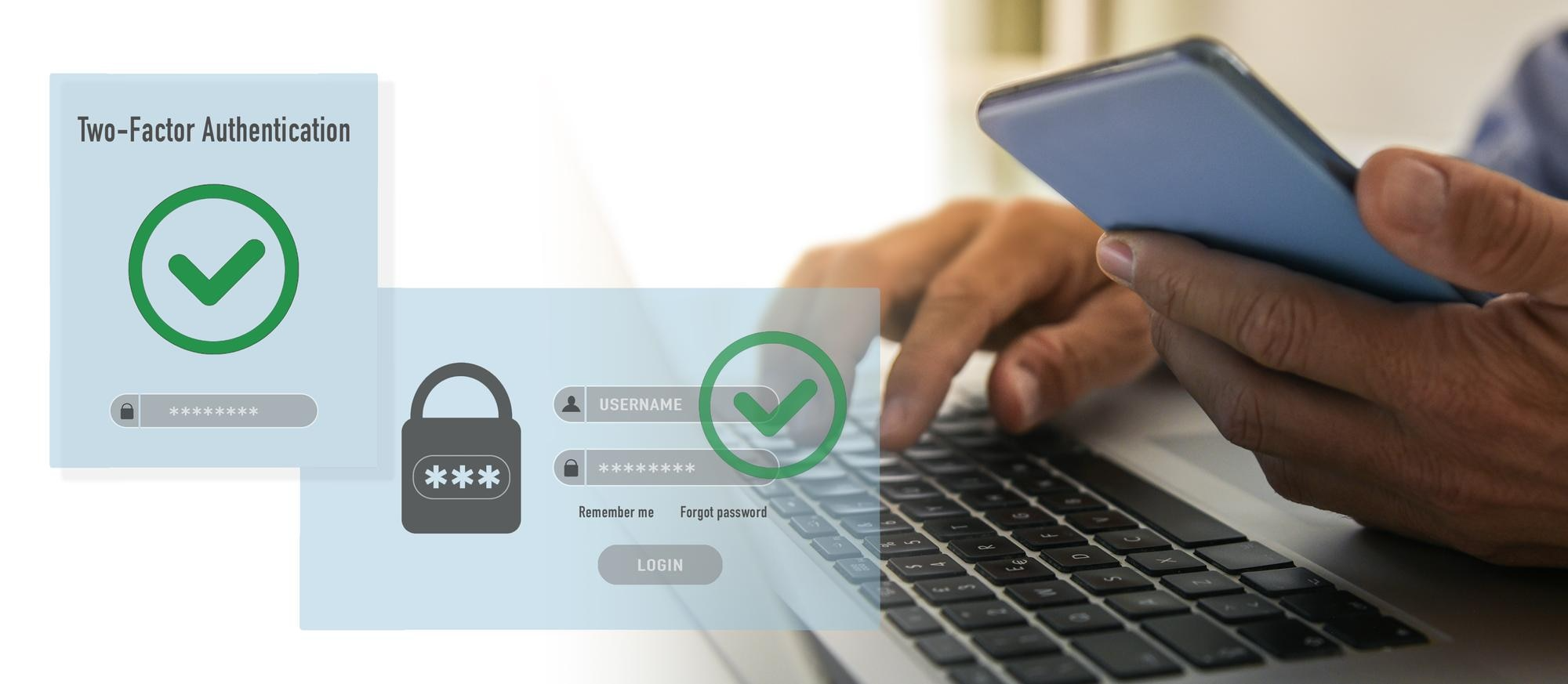AI and HIPAA: Navigating Security and Privacy With Conversational AI
In medical practice, HIPAA compliance is non-negotiable. With the rapid adoption of conversational AI, new dimensions are added to the challenge....
5 min read
Gregory Vic Dela Cruz : August 7, 2025

With breakthroughs in healthcare tech, especially with the use of AI, patients now expect faster and more personalized communication from their healthcare providers. This is all without compromising personal privacy. For small private practices, meeting these expectations can be a challenge without the right tools. That’s where conversational AI comes in.
In this blog, we’ll explore how conversational AI for small private practices is revolutionizing patient communication. We’ll also cover its key benefits, common challenges, and how HIPAA-compliant AI chat and medical office chatbots can transform operations.
If you're ready to reduce phone call volume, improve response times, and deliver modern patient experiences, keep reading. We’ll show you how Curogram can help make this transformation easy and secure.
Conversational AI is a type of artificial intelligence designed to simulate human conversation through chatbots, voice assistants, and messaging platforms. It processes natural language, allowing it to interact with patients in a way that feels intuitive and human-like. For small private practices, it offers an opportunity to automate many patient-facing tasks without the need for a large administrative team.
Small clinics and private practices often lack the staff to handle incoming calls, appointment scheduling, and routine questions around the clock. This is where conversational AI can provide immense value. It acts as a digital front desk—available 24/7 to answer common patient inquiries, send reminders, help with pre-visit tasks, and collect feedback.
When implemented thoughtfully, conversational AI reduces burnout, enhances efficiency, and elevates the patient experience. Best of all, it allows smaller practices to stay competitive with larger healthcare systems that already use advanced automation.
Running a small private medical practice means juggling many responsibilities with limited staff. Communication bottlenecks can quickly pile up—especially when most of the administrative burden falls on just one or two people. Phone lines get jammed. Voicemails go unanswered. Patients wait days for a reply. These delays can lead to missed appointments, lost revenue, and even poor reviews.
Patients often have questions outside of normal business hours—after 6 PM or during weekends. Without someone to answer those queries, small practices lose engagement opportunities and risk frustrating patients who may turn to more accessible providers.
Repetitive tasks like answering common questions or confirming appointments can consume a large chunk of your staff's time. This not only limits their productivity but also increases stress and reduces job satisfaction.
Every missed call is a potential lost appointment or dissatisfied patient. Small teams can’t always catch every ring, and returning calls late means slower revenue cycles and lower patient retention.
With limited staff, it’s difficult to deliver consistently excellent service across every touchpoint. Some patients might receive fast responses, while others wait days. This inconsistency undermines trust and loyalty.
Having patients fill out forms on clipboards is not only inefficient, it often leads to errors and delays in getting patients into the EMR system.
Thankfully, innovations like HIPAA-compliant AI chat systems are transforming how small practices manage communication, giving teams the tools they need to stay efficient and secure. Let’s explore how these systems work.
Small private practices must adhere to the same data security standards as large hospital systems. With the rise of digital communication tools, HIPAA compliance has become more critical—and more complex—than ever before. That’s why any AI solution used in healthcare must meet strict HIPAA requirements, especially when it comes to storing and transmitting protected health information (PHI).
Using general-purpose AI or chat tools (like Facebook Messenger or WhatsApp) to communicate with patients can lead to serious HIPAA violations. Penalties include hefty fines and reputational damage—something a small private practice can’t afford. Moreover, patients trust their providers to keep their information safe. A data breach could destroy that trust in an instant.
Patients feel more confident when they know their sensitive medical information is protected. With a HIPAA-compliant AI chat system, they can ask questions, receive instructions, and confirm appointments knowing their privacy is respected. This creates a more open, engaging, and safe environment for communication—without the fear of data leaks.
Let’s now look at how a dedicated AI chatbot designed specifically for medical offices can take things further.

Unlike generic chatbots, an AI chatbot for medical offices is trained to understand clinical language, patient intent, and healthcare workflows. For small practices with limited staff, it’s a game-changer. These bots can handle appointment requests, send reminders, route urgent questions to the right staff member, and even collect insurance details—saving your team hours of manual work each week.
The front desk is often overwhelmed with calls, paperwork, and walk-ins. An AI chatbot relieves some of this pressure by automating responses to common queries—“Do you take walk-ins?”, “What insurance do you accept?”, or “How do I send medical records?”—allowing staff to focus on in-office patients and high-priority tasks.
Curogram’s Online Chat Request allows website visitors to send real-time SMS messages for booking appointments, asking questions, or checking service availability. This feature converts more website traffic into appointments and enhances patient satisfaction by reducing phone call dependency. With built-in smart routing and after-hours automation, your office stays connected even when your staff isn’t available.
Many AI chatbots also include automated after-hours responses, ensuring patients feel acknowledged and informed—even outside business hours. Coupled with HIPAA compliance, this ensures a safe and seamless experience from the first message to post-appointment follow-ups.
Now let’s wrap things up with a look at how to start implementing conversational AI in your clinic.
Introducing conversational AI into your clinic may sound complex, but it doesn’t have to be. With a thoughtful rollout plan and the right technology partner, small private practices can see real benefits in as little as a few weeks. Here’s how to begin:
Ask yourself what tasks are consuming your staff’s time. Is it phone calls? Appointment reminders? Missed follow-ups? Clarify your pain points to help prioritize features.
Select a platform like Curogram that is built with healthcare in mind. This ensures you’re meeting all legal obligations while optimizing performance for medical use cases.
Check if the AI chatbot integrates with your EMR, practice management software, and website. Seamless integration eliminates the need for double entry and keeps patient data consistent.
Make sure your staff knows how the system works. A quick training session ensures they can step in if escalation is needed or if patients require human interaction.
Review performance data weekly or monthly. How many chats were resolved by AI? How many appointments were booked? Use insights to fine-tune responses and workflows.
Implementing conversational AI doesn't just solve today’s problems—it future-proofs your practice for evolving patient expectations and digital healthcare trends.
Small private practices no longer need to choose between quality care and operational efficiency. Conversational AI bridges the gap—offering an always-on, always-compliant solution that meets both patient and provider needs. From secure HIPAA-compliant chats to smart AI chatbots designed for medical offices, the tools to transform your practice are now accessible, affordable, and easy to use.
Whether you’re aiming to reduce phone volume, improve response time, or offer better patient experiences, conversational AI offers a solution tailored to your size and workflow.
Ready to bring intelligent automation to your front office? Request a demo today and see how easy it is to modernize your patient engagement—without losing the personal touch.

In medical practice, HIPAA compliance is non-negotiable. With the rapid adoption of conversational AI, new dimensions are added to the challenge....
.png)
💡After-hours patient communication is one of the biggest challenges in modern healthcare. Patients don’t only need help between 9 and 5. They call...

In today's hyper-connected world, text messaging has become a dominant form of communication – quick, convenient, and almost universally adopted....